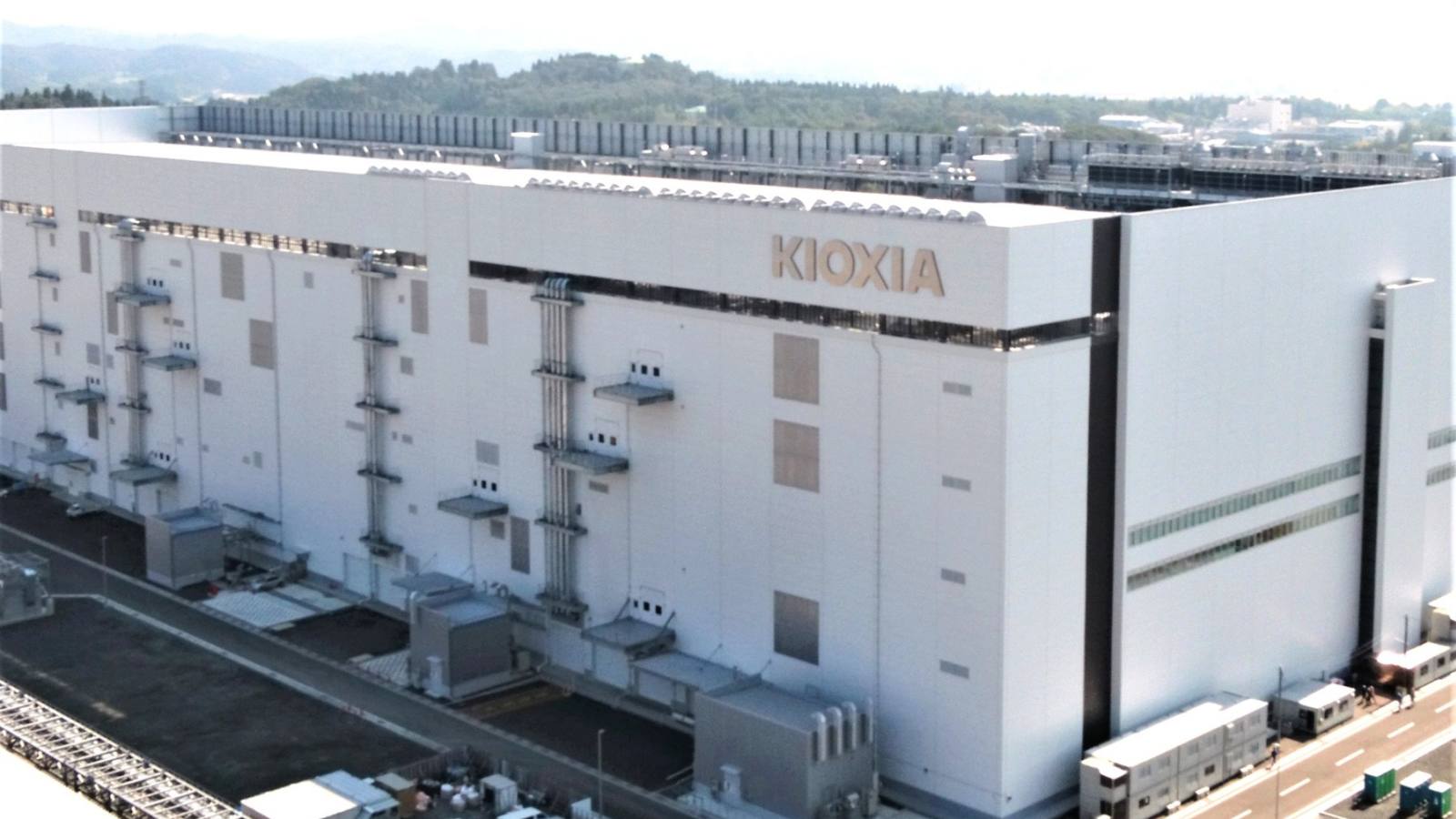Kioxia Holdings Corp shelved plans to list on the Tokyo Stock Exchange on Oct. 6 and offer up to $3.2 billion in shares due to tighter US restrictions on Huawei Technologies Co Ltd that could result in oversupply and lower prices of memory chips.
The initial public offering (IPO) would have been Japan’s biggest this year.
Kioxia, previously known as Toshiba Memory, made no mention of the curbs and only cited market volatility and ng concerns about a second wave of the pandemic in putting off the IPO.
Shares in top shareholder Toshiba Corp, which had planned to sell an 8 percent stake, dropped by as much as 8.6 percent due to the postponement, before paring the losses to 3 percent.
The memory chip market is bracing for the impact of the US restriction on global suppliers from selling US technology-based chips to Huawei without a special license that came into force on Sept. 15.
Kioxia CEO Nobuo Hayasaka said that while the company received significant interest from investors, they do not believe it is the best time to proceed with the IPO, and they are not in a rush.
Earlier this month, Kioxia set a tentative IPO price range that put the market value lower than $18.9 billion.
The consortium’s stake was to drop from 56.2 percent to 47.8 percent.



 Amazon Stock Rebounds After Earnings as $200B Capex Plan Sparks AI Spending Debate
Amazon Stock Rebounds After Earnings as $200B Capex Plan Sparks AI Spending Debate  Missouri Judge Dismisses Lawsuit Challenging Starbucks’ Diversity and Inclusion Policies
Missouri Judge Dismisses Lawsuit Challenging Starbucks’ Diversity and Inclusion Policies  Weight-Loss Drug Ads Take Over the Super Bowl as Pharma Embraces Direct-to-Consumer Marketing
Weight-Loss Drug Ads Take Over the Super Bowl as Pharma Embraces Direct-to-Consumer Marketing  SpaceX Prioritizes Moon Mission Before Mars as Starship Development Accelerates
SpaceX Prioritizes Moon Mission Before Mars as Starship Development Accelerates  Baidu Approves $5 Billion Share Buyback and Plans First-Ever Dividend in 2026
Baidu Approves $5 Billion Share Buyback and Plans First-Ever Dividend in 2026  Instagram Outage Disrupts Thousands of U.S. Users
Instagram Outage Disrupts Thousands of U.S. Users  SpaceX Pushes for Early Stock Index Inclusion Ahead of Potential Record-Breaking IPO
SpaceX Pushes for Early Stock Index Inclusion Ahead of Potential Record-Breaking IPO  American Airlines CEO to Meet Pilots Union Amid Storm Response and Financial Concerns
American Airlines CEO to Meet Pilots Union Amid Storm Response and Financial Concerns  OpenAI Expands Enterprise AI Strategy With Major Hiring Push Ahead of New Business Offering
OpenAI Expands Enterprise AI Strategy With Major Hiring Push Ahead of New Business Offering  FDA Targets Hims & Hers Over $49 Weight-Loss Pill, Raising Legal and Safety Concerns
FDA Targets Hims & Hers Over $49 Weight-Loss Pill, Raising Legal and Safety Concerns  Ford and Geely Explore Strategic Manufacturing Partnership in Europe
Ford and Geely Explore Strategic Manufacturing Partnership in Europe  Washington Post Publisher Will Lewis Steps Down After Layoffs
Washington Post Publisher Will Lewis Steps Down After Layoffs  Rio Tinto Shares Hit Record High After Ending Glencore Merger Talks
Rio Tinto Shares Hit Record High After Ending Glencore Merger Talks  Prudential Financial Reports Higher Q4 Profit on Strong Underwriting and Investment Gains
Prudential Financial Reports Higher Q4 Profit on Strong Underwriting and Investment Gains  CK Hutchison Launches Arbitration After Panama Court Revokes Canal Port Licences
CK Hutchison Launches Arbitration After Panama Court Revokes Canal Port Licences  Toyota’s Surprise CEO Change Signals Strategic Shift Amid Global Auto Turmoil
Toyota’s Surprise CEO Change Signals Strategic Shift Amid Global Auto Turmoil 































